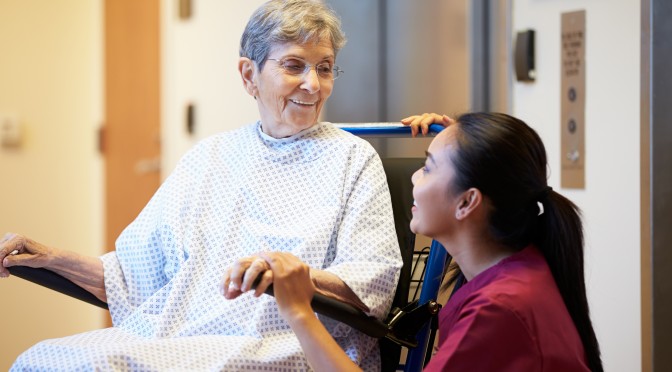June 18 through June 24 is National Nursing Assistants Week. The week honors and recognizes the hard work and effort direct care workers perform in caring for older adults.
Who are the Nursing Assistants (Direct Care Workers)?
In 2007, the Bureau of Labor Statistics published a profile of direct care workers. While “direct care worker” includes more than nursing assistants, the profile certainly fits. The majority (90%) of direct care workers are female and nearly half (49%) are minorities. Also, over three-fifths (62%) of direct care workers only have a high school education or less. In 2005, direct care workers earned a median hourly wage of $9.26. This hourly rate translated to an annual rate of $29,770.
Although this BLS profile was created in 2007, not much has changed since then. The majority of direct care workers are women, minorities, and have a high school education or less. Unfortunately, direct care workers are still chronically underpaid and undervalued.
The Role of Direct Care Workers
These are the people who provide the majority of care in long-term care settings. They support residents in getting meals and participating in activities. Direct care workers offer compassion and dignity in providing residents’ baths and assisting in toileting. These tasks are considered menial work. However, their critical custodial care keeps older adults functioning in nursing homes and other long-term care communities.
Direct care workers also know their residents. They play detective in understanding what residents with dementia are trying to communicate. Also, these workers know their residents’ triggers and moods. Furthermore, they are arguably the most knowledgeable staff members, in terms of resident needs and preferences.
Regrettably, direct care workers are still underpaid and undervalued, despite the crucial role they provide. It is shameful that not much, if anything, has changed regarding their pay and status. While the week-long, annual acknowledgement of the work they do is a start, more needs to be done. Direct care workers need training opportunities. They also must have support and higher wages. It is vital to improve the lives of direct care workers. We need to honor their role in serving and caring for residents. It will take more than a week to get it done.
Kathy Dreyer, Ph.D., is an Advisor at AGE-u-cate® Training Institute, which develops and delivers innovative research-based aging and dementia training programs such as Dementia Live® and Compassionate Touch®, for professional and family caregivers; kathy.dreyer@ageucate.com
